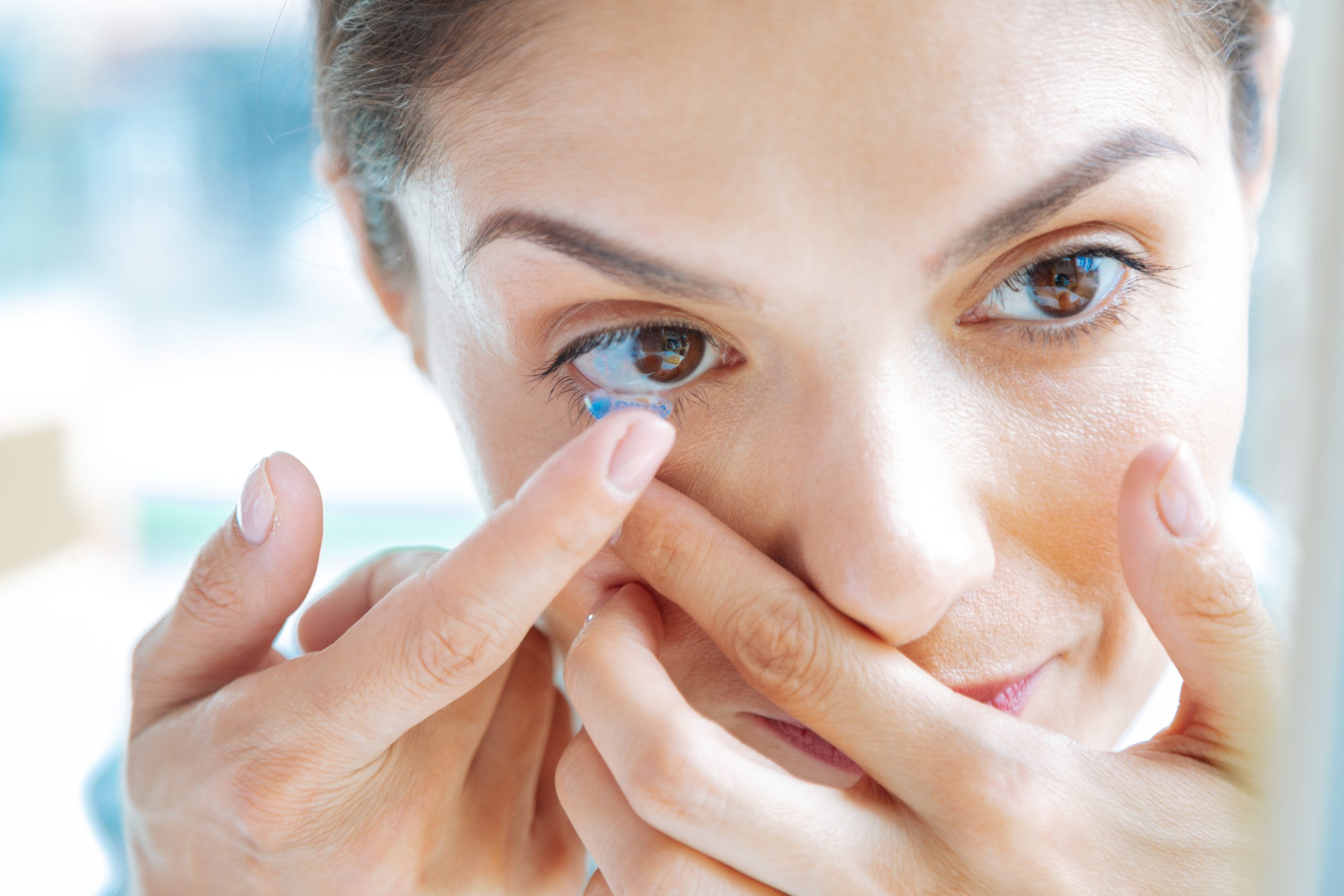Contact Lenses: Separating Facts from Myths
Contact lenses have revolutionized the way people correct their vision, offering a convenient and often more comfortable alternative to traditional eyeglasses. However, amidst their popularity, several misconceptions and myths persist. In this article, we’ll delve into the facts and myths surrounding contact lenses, providing clarity on their usage, safety, and benefits.
Myth: Contact lenses are uncomfortable to wear.
Fact: While it’s true that some individuals may initially find contact lenses uncomfortable, modern advancements in lens materials and designs have significantly improved comfort levels. Many wearers report hardly noticing their contact lenses once they’ve become accustomed to them. Moreover, various types of lenses, such as daily disposables or silicone hydrogel lenses, offer enhanced comfort and breathability.
Myth: Contact lenses are only suitable for certain vision conditions.
Fact: Contact lenses are available to correct a wide range of vision problems, including nearsightedness, farsightedness, astigmatism, and presbyopia. There are multifocal lenses for individuals with both near and distance vision issues, toric lenses for astigmatism, and even custom lenses for irregular corneas. With the guidance of an eye care professional, most individuals can find a contact lens option that suits their specific needs.
Myth: Contact lenses can get lost behind your eye.
Fact: It’s physically impossible for a contact lens to get lost behind the eye. The structure of the eye prevents anything from slipping behind it. If a contact lens feels like it’s lost, it has likely moved under the eyelid or fallen out altogether. With proper insertion and removal techniques, the risk of misplacement is minimal.
Myth: Contact lenses can lead to eye infections.
Fact: While improper handling and poor hygiene habits can increase the risk of eye infections, following recommended guidelines significantly reduces this risk. Thoroughly washing hands before handling lenses, properly cleaning and disinfecting lenses, and adhering to replacement schedules are essential practices for maintaining ocular health. Additionally, using daily disposable lenses eliminates the need for cleaning and reduces the risk of contamination.
Myth: Contact lenses are not suitable for active lifestyles.
Fact: On the contrary, contact lenses are often the preferred vision correction option for individuals with active lifestyles. Unlike glasses, which can shift or fall off during physical activities, contact lenses provide uninterrupted vision without hindering movement. They’re popular among athletes, outdoor enthusiasts, and anyone who wants clear vision without the inconvenience of glasses.
Myth: Contact lenses are prohibitively expensive.
Fact: While the cost of contact lenses varies depending on the type and brand, there are options available to suit various budgets. Additionally, many vision insurance plans cover the cost of contact lenses, making them more affordable for individuals with coverage. Moreover, factors such as comfort, convenience, and improved quality of life often outweigh the monetary investment for many wearers.
Conclusion
Contact lenses offer a safe, effective, and convenient solution for vision correction for millions of people worldwide. By dispelling common myths and understanding the facts, individuals can make informed decisions about their eye care. Consulting with an eye care professional is paramount to ensure the selection of the most suitable contact lens option for individual needs and lifestyle. With proper care and hygiene practices, contact lenses can provide clear and comfortable vision, empowering individuals to lead active and fulfilling lives without the hindrance of glasses.
World Eye Care Foundation’s eyecare.live brings you the latest information from various industry sources and experts in eye health and vision care. Please consult with your eye care provider for more general information and specific eye conditions. We do not provide any medical advice, suggestions or recommendations in any health conditions.
Commonly Asked Questions
It’s generally not recommended to sleep with contact lenses, as it can increase the risk of eye infections and discomfort. Consult with your eye care professional for specific guidance.
The recommended wearing time varies depending on the type of contact lenses. Some lenses are approved for extended wear, while others should be removed nightly. Follow your eye care provider’s instructions for safe wear.
Contact lenses can be prescribed to individuals of various ages, including children and seniors. However, suitability may depend on factors such as eye health, prescription strength, and ability to follow care instructions.
Contact lenses can exacerbate dry eye symptoms in some individuals, especially if not properly hydrated or if worn for extended periods. Using lubricating eye drops and following recommended wearing schedules can help alleviate discomfort.
Colored contact lenses are safe when prescribed and fitted by an eye care professional. However, purchasing them without a prescription or from unauthorized sellers can pose risks to eye health. Always obtain colored lenses from a reputable source.
Contact lenses can correct many common vision problems, but they may not be suitable for certain conditions or prescriptions. Consulting with an eye care professional is essential to determine the most appropriate vision correction option for individual needs.
Improper use or handling of contact lenses, such as wearing them for too long or failing to clean them properly, can increase the risk of corneal abrasions. Following proper hygiene and care practices minimizes this risk.
If a contact lens feels uncomfortable, remove it immediately and inspect it for damage or debris. If discomfort persists after cleaning and reinserting the lens, consult your eye care provider to rule out any underlying issues.
Yes, toric contact lenses are specifically designed to correct astigmatism. These lenses have different powers in different meridians of the lens to address the irregular curvature of the cornea associated with astigmatism.
It’s generally not recommended to swim or shower while wearing contact lenses, as water exposure can increase the risk of eye infections and lens displacement. Consider wearing prescription goggles for swimming and remove lenses before showering or water-related activities.
news via inbox
Subscribe here to get latest updates !







